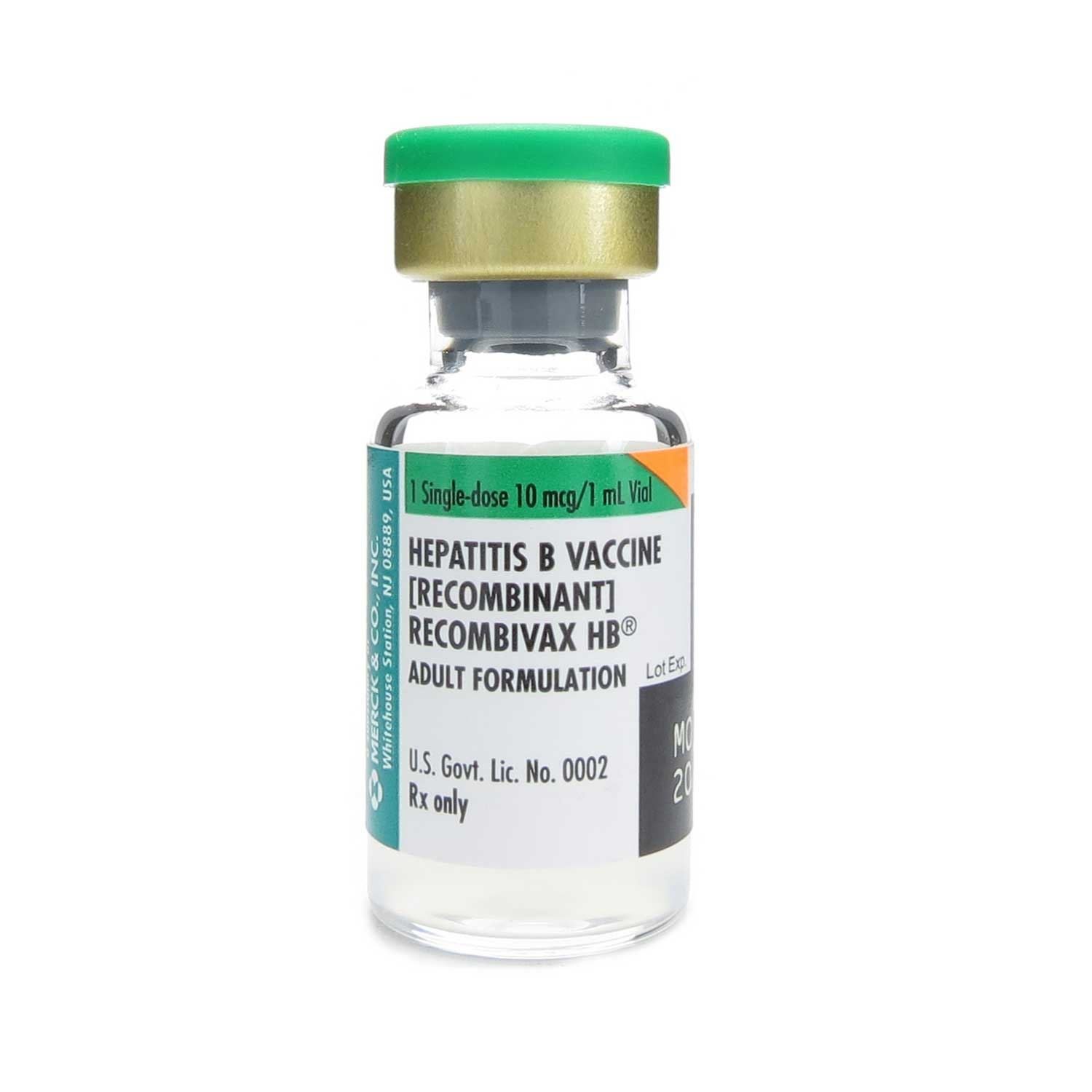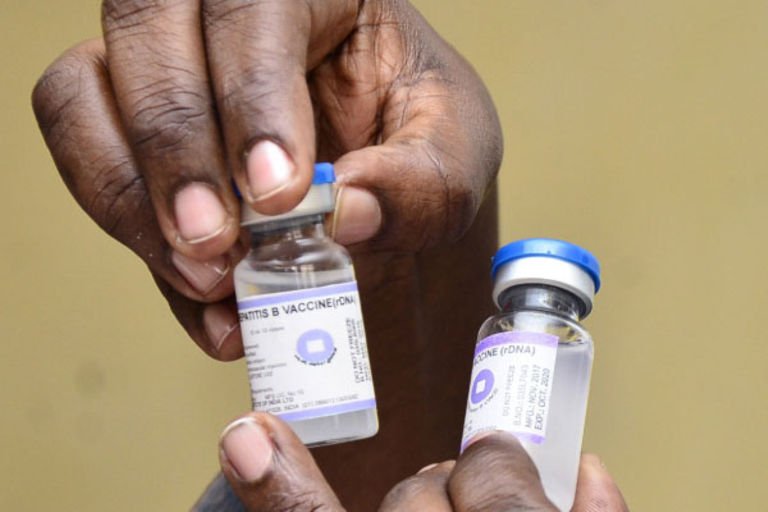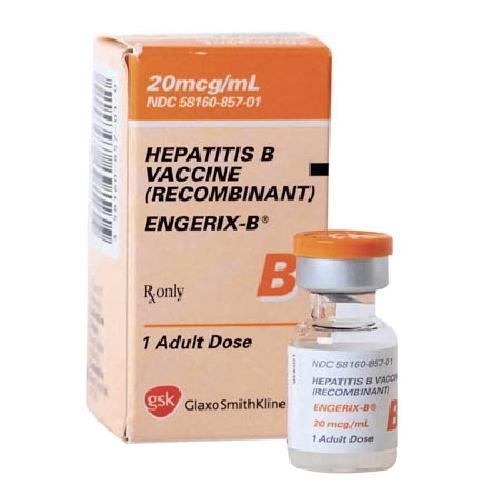Transmission Symptoms And Treatment
How is HBV transmitted?
HBV is transmitted through activities that involve percutaneous or mucosal contact with infectious blood or body fluids , including
- sex with a partner who has HBV infection
- injection drug use that involves sharing needles, syringes, or drug-preparation equipment
- birth to a person who has HBV infection
- contact with blood from or open sores on a person who has HBV infection
- exposures to needle sticks or sharp instruments and
- sharing certain items with a person who has HBV infection that can break the skin or mucous membranes , potentially resulting in exposure to blood.
How long does HBV survive outside the body?
HBV can survive outside the body and remains infectious for at least 7 days .
What should be used to clean environmental surfaces potentially contaminated with HBV?
Any blood spills should be disinfected using a 1:10 dilution of one part household bleach to 9 parts water. Gloves should be worn when cleaning up any blood spills.
Who is at risk for HBV infection?
The following populations are at increased risk for becoming infected with HBV:
- Infants born to people with HBV infection
- Sex partners of people with HBV infection
- Men who have sex with men
- People who inject drugs
- Household contacts or sexual partners of known people with chronic HBV infection
- Health care and public safety workers at risk for occupational exposure to blood or blood-contaminated body fluids
- Patients on hemodialysis
Who should be screened for HBV?
Risk Assessment For Travelers
The level of risk of infection with HAV or HBV for travelers depends on several factors, including the disease endemicity in the travel destination, the duration and frequency of travel, the activities to be undertaken, and the purpose of the travel . Travelers who remain in an area of high endemicity for extended periods are likely to be at higher risk of exposure to hepatitis A and/or hepatitis B than are those who take short trips. This is also true for those who travel frequently, but for shorter periods, to countries of endemicity, who may be at a cumulative lifetime risk.
The type of traveler is also an important factor, with backpackers generally having a higher probability of exposure to infection with HAV and/or HBV than business travelers and, thus, being at increased risk. The risk behavior profile of the traveler should be considered, with sexual promiscuity, , acupuncture, body piercing, tattooing, and adventure sports considered to be high-risk activities in terms of potential exposure to infection.
The importance of preventing hepatitis A and B in traveling children should be emphasized. Although HAV infection is usually asymptomatic in younger children, this population plays an important role in the transmission of HAV through importation of disease and subsequent transmission in nursery settings . For hepatitis B, the risk of developing chronic infection is higher for children who are infected at birth than for those who are infected at an older age .
Concurrent Administration Of Vaccines
HB-containing vaccines may be administered concomitantly with other vaccines or with HBIg. Different injection sites and separate needles and syringes must be used for concurrent parenteral injections.
Refer to Timing of Vaccine Administration in Part 1 for additional information about concurrent administration of vaccines.
Also Check: Antiviral Medication For Hepatitis C
International Hepatitis B Vaccine Schedules
*Please note that the first dose should be given as soon as possible. Additional doses require minimum time intervals between doses in order for the vaccine to be effective.
The hepatitis B vaccine is an injection that is generally given in the arm and as a three-dose series. The World Health Organization recommends a 0, 1, and 6-month vaccine schedule, though schedules may vary based on a countrys national immunization program. Completing the hepatitis B vaccine series, preferably beginning at birth, will ensure protection against hepatitis B, hepatitis delta and lower the lifetime risk of liver cancer. Greater than 90% of babies and up to 50% of young children who are not vaccinated and are infected with hepatitis B will have lifelong infection, which makes the birth dose essential to their protection. Please note that the vaccine brand name, manufacturer and associated schedules for adults, children and infants may be unique to different countries, though there is a list of WHO prequalified vaccines.
3-Dose Vaccine Series for Infants
The World Health Organization recommends all infants receive the first dose of the hepatitis B vaccine within 24 hours of birth and to complete the vaccine series with additional shots at 1 month and 6 months of age. Beginning the hepatitis B vaccine at birth will ensure protection against hepatitis B for life.
3-Dose Vaccine Series for Children and Adults
4-Dose Combination Vaccine Series for Infants
Additional Resource Links:
Search Strategy And Selection Criteria

The recommendations for the administration of booster doses of hepatitis A and hepatitis B formed the basis of the search. The literature cited in these articles was updated and expanded to include articles relevant to hepatitis A and B and travel. The following were searched: the PubMed database, World Health Organization and Centers for Disease Control and Prevention Web sites, current hepatitis recommendations, and relevant publications . Only articles written in English were included.
You May Like: Where To Get A Hepatitis B Shot
Are Hepatitis B Virus Infections Easily Avoided
Large quantities of hepatitis B virus are present in the blood of people with hepatitis B in fact, as many as one billion infectious viruses can be found in a milliliter of blood from an infected individual. Therefore, hepatitis B virus is transmitted in the blood of infected individuals during activities that could result in exposure to blood, such as intravenous drug use, tattooing, or sex with people who are infected. However, it is also possible to catch hepatitis B virus through more casual contact, such as sharing washcloths, toothbrushes or razors. In each of these cases, unseen amounts of blood can contain enough viral particles to cause infection. In addition, because many people who are infected don’t know that they are infected, it is very hard to avoid the chance of getting infected with hepatitis B virus.
Who Should Receive Hepatitis B Vaccination
- All newborns before hospital discharge. Infants born to hepatitis B-positive women need hepatitis B vaccine and HBIG within 12 hours of birth.
- All children and adolescents not previously vaccinated.
- Children born in the U.S. to individuals born in a country with high hepatitis B endemicity.
- All individuals at risk of hepatitis B infection:
- Sex partners of hepatitis B-positive persons
- Sexually active persons who are not in a long-term, mutually monogamous relationship
- Persons seeking evaluation or treatment for a sexually-transmitted disease
- Men who have sex with men
- Persons who inject drugs
- Household contacts of hepatitis B-positive persons
- Persons born in countries where hepatitis B infection is endemic should be tested and vaccinated if susceptible
- International travelers to regions with high or intermediate rates of endemic hepatitis B infection
- Health care and public safety workers that may be exposed to blood or blood-contaminated body fluids
- Residents and staff of facilities for developmentally disabled persons, corrections facilities, and other facilities that serve adults at risk for hepatitis B infection
- Persons with end-stage renal disease, including pre-dialysis, hemodialysis, peritoneal dialysis, and home dialysis patients
- Persons with chronic liver disease
- Persons to age 60 years with diabetes
- Persons with HIV infection
- All other persons seeking protection from hepatitis B infection.
Recommended Reading: Hepatitis B Vaccine Dose For Adults
Hepatitis B Vaccination In Pregnancy
Hepatitis B infection in pregnant women may result in severe disease for the mother and chronic infection for the baby.
This is why the hepatitis B vaccine is recommended for pregnant women who are in a high-risk category.
There’s no evidence of any risk from vaccinating pregnant or breastfeeding women against hepatitis B.
And, as it’s an inactivated vaccine, the risk to the unborn baby is likely to be negligible .
The National Vaccine Injury Compensation Program
The National Vaccine Injury Compensation Program is a federal program that was created to compensate people who may have been injured by certain vaccines. Claims regarding alleged injury or death due to vaccination have a time limit for filing, which may be as short as two years. Visit the VICP website at www.hrsa.gov/vaccinecompensation or call 1-800-338-2382 to learn about the program and about filing a claim.
Also Check: What Is The Cure For Hepatitis B
Hepatitis A Vaccine: Canadian Immunization Guide
For health professionals
Last partial chapter update
: The immunoglobulin dosage for Hepatitis A pre-exposure and post-exposure prophylaxis was increased based on the Product Monograph update for GamaSTAN®, which is available on Health Canada’s Drug Product Database.
Last complete chapter revision: March 2018
Advisory Committee On Immunization Practices
The Centers for Disease Control and Prevention’s Advisory Committee on Immunization Practices provide recommendations for the hepatitis B vaccine. The following include persons recommended to receive the hepatitis B vaccination :
- All infants
- Adults aged 60 years and older with risk factors for hepatitis B:
-
Persons at risk for infection by sexual exposure
- Sex partners of persons testing positive for HBsAg
- Sexually active persons who are not in a long-term, mutually monogamous relationship
- Persons seeking evaluation or treatment for a sexually transmitted infection
- Men who have sex with men
Persons at risk for infection by percutaneous or mucosal exposure to blood
Others
Recommended Reading: Xifaxan Dose For Hepatic Encephalopathy
Why Should I Vaccinate My Newborn Child If I Know That I Am Not Infected With Hepatitis B Virus
Before the hepatitis B vaccine, every year in the United States about 18,000 children were infected with hepatitis B virus by the time they were 10 years old. This statistic is especially important because people are much more likely to develop liver cancer or cirrhosis if they are infected early in life, rather than later in life .
About 9,000 of the 18,000 children infected in the first 10 years of life caught the virus from their mother during birth. However, many young children didn’t catch the disease from their mother. They caught it from either another family member or someone else who came in contact with the child. Because hepatitis B can be transmitted by relatively casual contact with items contaminated with the blood of an infected person, and because many people who are infected with hepatitis B virus don’t know that they have it, it is virtually impossible to be “careful enough” to avoid this infection.
For these reasons, all young children are recommended to receive the hepatitis B vaccine. The best time to receive the first dose is right after birth. This will ensure that the child will be protected as early as possible from catching hepatitis B from people who dont know that they are infected with the virus.
Listen to Dr. Offit explain why newborns get the hepatitis B vaccine by watching this short video, part of the series Talking About Vaccines with Dr. Paul Offit.
Search Methods For Identification Of Studies

Electronic searches
We searched the Cochrane HepatoBiliary Group Controlled Trials Register , the Cochrane Central Register of Controlled Trials , MEDLINE , EMBASE , and Science Citation Index Expanded , until January 2016. The search strategies with the time spans of the searches are described in Appendix 2.
We searched ClinicalTrials.gov and the WHO International Clinical Trial Registry Platform for ongoing trials .
Searching other resources
We scanned the reference lists of all retrieved studies and pertinent reviews for additional references. We contacted authors of retrieved studies as well as vaccine manufacturers for additional unpublished randomised trials. We searched the following conference databases for unpublished data until December 2014.
- Annual Meeting of the Infectious Diseases Society of America available from www.idsociety.org.
- European Congress of Clinical Microbiology and Infectious Diseases available from www.escmid.org.
- Interscience Conference on Antimicrobial Agents and Chemotherapy available from www.icaac.org.
Don’t Miss: Where Does Hepatitis A Come From
Hepatitis B Vaccination Schedule For Children And Infants
The Centers for Disease Control and Prevention recommends that babies and children receive three 0.5 milliliter doses of either Engerix-B or Recombivax HB, starting just after birth.
The current recommended hepatitis B vaccine schedule for children and infants is as follows:
| Hepatitis B Vaccination Schedule for Infants and Children | |
|---|---|
| Hepatitis B Vaccine Dose | |
| 3 | 618 months old |
If your child is undergoing hemodialysis, your healthcare provider may recommend that they receive additional doses of the HBV vaccine.
Is It Okay To Get An Extra Dose Of Hepatitis B Vaccine
Yes. Although extra doses of vaccine are not recommended, you can think of the extra dose as another chance for the immune system to see the hepatitis B virus. A vaccine is not the only time the immune system will see the virus or bacteria contained in it. People may be exposed to the virus or bacteria at school or the store or when visiting family or friends. An extra dose of vaccine is like one more exposure, except the difference is that the virus or bacteria in any vaccine has been made safe, so it wont make you ill.
Also Check: Does Hepatitis C Go Away
Summary Of Main Results
According to the objectives of this review, we intended to assess anamnestic immune response to the hepatitis B vaccine booster dose in vaccinees after five years from the initial hepatitis B vaccination with hepatitis B surface antibody levels below 10 mIU/mL. We restricted our systematic review to randomised clinical trials only. We did not identify any randomised trials to fulfil the inclusion criteria of this review, and hence, we could not meet the objectives of our review. However, in our search process for identification of randomised trials, as well as through previous research done by us , we identified several nonrandomised studies which addressed anamnestic immune response to a booster dose of hepatitis B vaccine in nonprotected vaccinees, without considering any control group.
Common And Local Adverse Events
HB vaccine
HB vaccine is well tolerated. Reactions are generally mild and transient, and include: irritability, headache, fatigue and injection site reactions in 10% or more of recipients.
HAHB vaccine
There is no increase in adverse events when HAHB vaccine is compared with HA vaccine given alone or concomitantly with HB vaccine at a different injection site. When the adult formulation of HAHB vaccine is given to children in the 2 dose schedule, there is no increase in adverse events compared with those occurring after administration of the pediatric formulation of HAHB vaccine.
DTaP-HB-IPV-Hib vaccine
Reactions are usually mild and transient, and include fever, irritability, restlessness and injection site reactions .
HBIg
Headache, diarrhea, fever, urticaria, angioedema and injection site reactions may occur.
You May Like: How Much Does Hepatitis C Treatment Cost
For Adults And Children
This vaccine schedule involves three doses within 2 months, followed by a booster dose at 1 year.
The initial accelerated doses provide immediate protection from HBV, and the booster dose helps provide long-term protection.
Below is the accelerated vaccination schedule approved for both adults and children:
| Vaccine series | |
|---|---|
| 2 months after the first dose | 1 year after the first dose |
The Above Policy Is Based On The Following References:
Recommended Reading: How Is Hepatitis D Transmitted
Important Information About Vaccine And Hepatitis B Immunoglobulin Shot Administration
Where available, the hepatitis B birth-dose and HBIG should be administered within 24 hours of birth in order to prevent the transmission of hepatitis B from mother to child. It is very important that the shots be given in opposite limbs, to ensure the highest effectiveness. Please see chart above for more information.
Experimental And Investigational Or Not Medically Necessary

Footnote1*Note: Aetna generally does not cover immunizations required for travel or because of work-related risk. Check contract language, limitations and exclusions for coverage details.
You May Like: Can You Get Rid Of Hepatitis C For Good